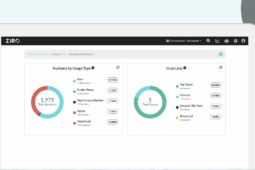
A Career Guide for The Smart UC Engineer
The unified communications (UC) landscape is amid an evolutionary change, and for UC engineers, the choice is clear: adapt and thrive or risk being left behind. Powerful forces are reshaping the very essence of UC, and these are forces that no engineer can afford to overlook.

This evolution started with a massive migration to the cloud, followed by a rapid shift toward remote work. Now, industry giants like Microsoft are steering the course toward commoditization. It’s a call to action, a moment to seize. As a UC engineer, you possess the skills to shape this new era, so it’s time to embrace these changes and chart your path toward a brighter and more prosperous future.
UC’s Rapid Cloud Migration

The rapid migration of Unified Communications (UC) to the cloud is nothing short of a digital revolution, sweeping across large enterprises with undeniable force. This transformation is fueled by the compelling business case that cloud-based UC presents. Large enterprises are discovering the cloud offers agility, scalability, and substantial cost savings.
By shifting UC operations to the cloud, businesses can streamline their infrastructure, reduce maintenance, and leverage pay-as-you-go models. The result is improved flexibility, faster deployments, and the ability to adapt to changing market dynamics.
In today’s business environment, the cloud’s irresistible allure lies in its potential to enhance collaboration, elevate communication, and drive greater efficiency and competitiveness for large enterprises.
Smart UC engineers see these changes as an opportunity to elevate their role and develop long-term skills that make them invaluable going forward.
The Shift to Remote Work
The pandemic triggered an unprecedented and massive shift towards remote work, reshaping how companies operate. As organizations adapted to the challenges of the pandemic, remote work became
a necessity, and many discovered its viability and benefits. This transformation not only allowed businesses to ensure the safety of their employees but also revealed the potential for increased flexibility and productivity.
With no time to prepare, organizations had to rely on their existing Unified Communications (UC) platforms for remote work at scale. As we settle into a hybrid work future, these enterprises are taking the opportunity to step back and reevaluate their UC strategies.

The initial urgency has given way to a more measured approach, allowing them to carefully select and implement UC solutions that align with their long-term hybrid work goals. This strategic reassessment reflects a commitment to ensuring seamless communication and collaboration in a post-pandemic world where flexible work arrangements are here to stay.
Microsoft UC Commoditization
Microsoft has positioned itself well in this evolving landscape to use the cloud and remote work as a catalyst to commoditize unified communications. Enterprises increasingly recognize the value of streamlining their communication and collaboration stack, and many are turning to Microsoft Teams as the central technology to achieve this consolidation.
Microsoft Teams offers a comprehensive suite of communication tools, including voice, video conferencing, chat, document sharing, and integration with other Microsoft 365 applications. By adopting Teams as a central hub, organizations can simplify their IT infrastructure, reduce the need for multiple disparate tools, and create a unified and cohesive digital workplace experience for their employees.
This consolidation enhances efficiency and provides a consistent user experience, making it easier for teams to collaborate seamlessly, whether in the office or working remotely. As a result, Microsoft Teams has become a cornerstone in the modern enterprise’s strategy for fostering productivity, connectivity, and innovation.
Using Enterprise UC Transformation to Advance Your Career
UC engineers are not just technologists; they are change agents. Elevate your presence as someone who can manage enterprise technological change effectively. Develop skills in change management, communication, and stakeholder engagement.
Understand the human element of technology adoption and lead your organization through smooth transitions. By driving change in a strategic and user-friendly manner, you establish yourself as an indispensable asset.

Embrace the Cloud

The migration of Unified Communications (UC) to the cloud is not merely a technological shift; it’s a career-defining opportunity for UC engineers to reposition themselves as cloud migration and management specialists. Embracing this transformation empowers you to stand out in the industry and become a sought-after expert in the burgeoning field of cloud communications.
To reposition yourself effectively, start by mastering cloud migration strategies.
Understand the intricacies of migrating UC systems to cloud-based platforms, including data, applications, and workflows.
Embracing Microsoft
Moving UC to Microsoft Teams presents a unique and valuable opportunity for UC engineers to expand their skill set and position themselves as leading Microsoft engineering resources. Microsoft Teams is at the forefront of the modern collaboration and communication landscape, offering a comprehensive suite of tools that integrate seamlessly with the Microsoft stack, including SharePoint, Office 365, and Azure.
As UC engineers embrace Microsoft Teams, they not only gain expertise in a powerful UC platform but also become integral to their organization’s digital transformation journey. By mastering the intricacies of Microsoft’s ecosystem, UC engineers can play a pivotal role in driving innovation, efficiency, and productivity, solidifying their position as trusted experts in Microsoft technologies and shaping the future of communications and collaboration within their organizations.
Become A Remote Workforce Champion
Remote work is now a fundamental aspect of modern business. As a UC engineer, your role in supporting remote work is pivotal. Elevate your skills in remote collaboration tools, telephony solutions, and security measures.
Becoming a Microsoft communications and collaboration specialist offers IT professionals a compelling career opportunity beyond the traditional role of a UC engineer in the enterprise. While both positions share core unified communications (UC) elements, specializing in Microsoft’s ecosystem brings added advantages.
Microsoft’s suite, including Teams, SharePoint, and Office 365, is at the forefront of modern workplace transformation, making it a strategic focus for many organizations. As a specialist, you can tap into a broader and more diverse skill set encompassing UC and collaboration, cloud services, and integration with other Microsoft technologies.

This broader expertise opens doors to a more comprehensive range of career prospects, including cloud migration, digital transformation, and even cybersecurity roles. By using remote work to align your career with Microsoft’s ecosystem, you position yourself as a versatile professional with the potential for more diverse and dynamic opportunities in the ever-evolving enterprise IT landscape.
Use Remote Work as a Stepping Stone to Cybersecurity
The migration to Microsoft Teams marks a strategic shift in unified communications and serves as a stepping stone toward a promising career in cybersecurity for UC professionals. As organizations increasingly rely on Teams to facilitate remote work, IT professionals are pivotal in ensuring its security and functionality.
In an era where cybersecurity is paramount, expertise in managing and safeguarding digital collaboration platforms positions UC professionals as valuable assets. Over time, this experience in securing remote work environments becomes a helpful foundation for transitioning into cybersecurity, where the ability to protect critical assets and data is in high demand.
Transitioning to a career as a cybersecurity professional offers IT professionals a substantial advancement over being a UC engineer. A cybersecurity career not only comes with high demand but also provides job security and lucrative compensation. Moreover, cybersecurity presents opportunities for continuous learning and skill development as the field evolves.

With cybersecurity expertise, IT professionals become invaluable assets entrusted with safeguarding sensitive data and critical systems. It’s a career path that empowers individuals to impact an organization’s security posture and fosters a sense of accomplishment in defending against cyberattacks. It makes it a compelling and rewarding choice for those looking to elevate their IT careers.
In essence, the journey from Teams migration to remote work support can serve as a crucial path toward a rewarding career in cybersecurity, with IT professionals well-equipped to tackle the challenges of an increasingly digital and interconnected world.
Continuous Learning and Certification
In this ever-evolving field, continuous learning is non-negotiable. Stay updated with the latest communications and collaboration technologies and trends. Start by building a solid foundation in UC and mastering Microsoft Teams. Courses like “Microsoft Teams Administration” and “Microsoft 365 Certified: Teams Administrator Associate” provide comprehensive knowledge in managing and securing Teams environments. This knowledge will be a crucial asset as you move into cybersecurity, as understanding the platforms you’ll safeguard is paramount.

If you want to pivot towards cybersecurity, begin with fundamental cybersecurity courses like CompTIA Security+ or Cisco Certified CyberOps Associate. These certifications introduce you to essential security principles, threat detection, and risk management.

Practical Experience:
Hands-on experience is essential in cybersecurity. Seek opportunities to work on real-world security projects, such as penetration testing, vulnerability assessment, and security policy development. Practical experience will complement your theoretical knowledge and make you a well-rounded cybersecurity professional.
Transitioning from a UC engineer into the broader communication and collaboration space or a cybersecurity professional requires dedication and a commitment to ongoing learning. However, this path leverages your knowledge of UC technologies, allowing you to stand out as an IT resource with a deep understanding of communications. With the proper education, certifications, and practical experience, you can successfully bridge the gap between these critical IT domains and continue to have a rewarding career in the years to come.

The shift from on-premise to cloud UC doesn’t have to threaten your job security. Instead, view it as an opportunity to evolve and thrive in your role. By embracing change, upskilling, and actively contributing to the transition, you can safeguard your position and become a vital asset in your organization’s journey toward a more agile and efficient communications and collaboration environment. Remember, in the world of UC, adaptability is your greatest strength.
Ready to take your unified communications from headache to hassle-free?
No throwing darts at proposals or contracts. No battling through the back-end. No nonsense, no run-around.




